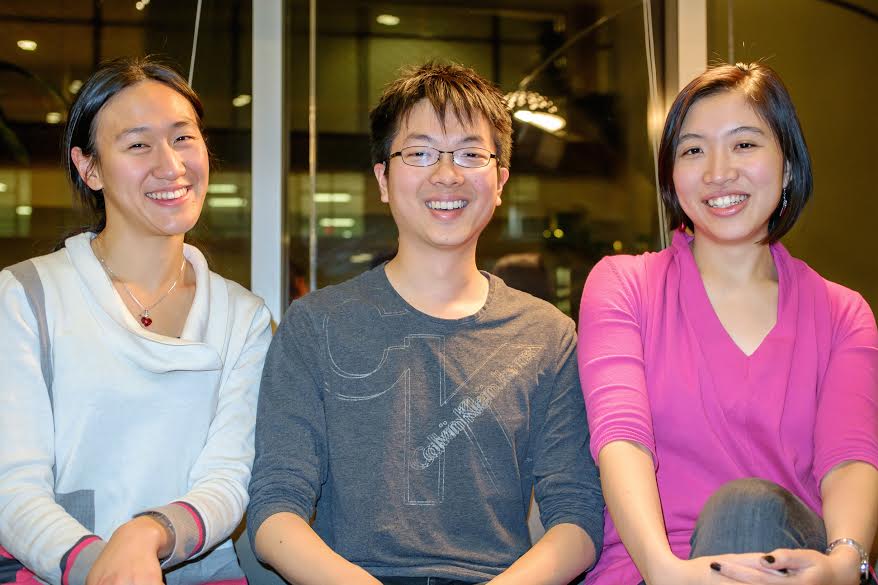MIT-Spun AquaFresco Aims to Reinvent Laundry

Alina Rwei, Chris Lai, and Sasha Huang/Image Provided
Laundry is about to be reinvented, thanks to three Ph.D. candidates from MIT.
Chris Lai, Sasha Huang, and Alina Rwei are the founders of AquaFresco, a startup developing a patent-pending filter that regenerates 95 percent of the water and detergent used in every load of laundry.
“Our day-to-day laundry is usually not that dirty,” Huang says. “We’re using a large amount of water to remove a small amount of waste components.”
Specifically, we’re using 20 gallons of water to remove just one tablespoon of dirt. For an average Marriott hotel, that adds up to a weekly $10,000 in water and detergent costs, according to AquaFresco. But if successful, the team hopes hotels could reuse the same filtered water, and detergent, for up to six months.
The idea for AquaFresco originated through MADMEC, MIT’s annual materials science competition focused on sustainability. The founders were granted a $1,000 budget and started brainstorming, using everyday tasks as inspiration to generate ideas.
“We all do laundry, and we all know we use a lot of water and detergent when we do our laundry,” Huang says. “We wanted to see what was missing there.”
AquaFresco won first place, but the success didn’t stop there. They were named finalists in the MIT $100K pitch competition, MIT Clean Energy Prize, and MIT Water Innovation Prize. In October, AquaFresco won $50,000 from startup accelerator MassChallenge.
“We have talked to hotels and laundromats,” Huang says, “and their reaction was very positive. It would be a huge advantage for them to adopt our system.”
In a commercial laundry case, hotels would connect their washer to an AquaFresco filtration unit. The unit would collect discharged wastewater and run it through a series of filtration and sanitization processes. The treated water, along with the detergent, would then feed back to the washer’s inlet for multiple cleaning cycles.
The team envisions the filtration unit working for laundromats, carwashes, and in industrial wastewater treatment—even in your own home.
For household laundry, Huang notes the ideal would be having the filter integrated into the washer, which would require the startup partnering with a manufacturer. The only difference for the average user would be in the washer’s size; the appliance could be up to 20 percent larger to accommodate the water storage tank and filtration unit.
Huang says they are first focusing on the commercial laundry space, however, and are aiming to secure additional funding from venture capitalists so they can have a minimum viable product on the market by June.
But if AquaFresco focuses on hotels alone, they could annually capture a $200 million market. With that much money saved, who can argue?


